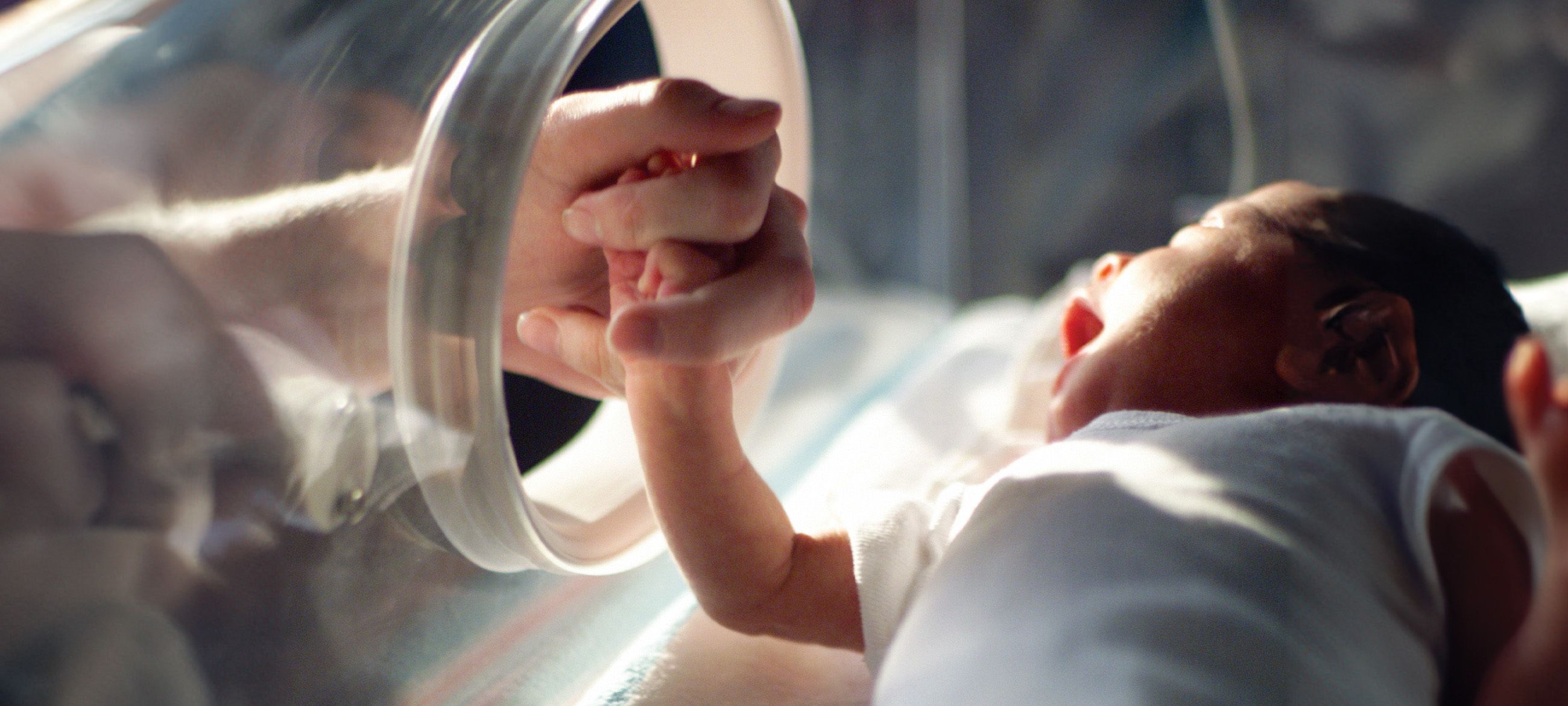Our Story
We've been helping to save children's lives for over 65 years.

Our Story
We've been helping to save children's lives for over 65 years.
• 1 in 20 children face a birth defect or genetic disease
• Cancer is triggered by genetic changes and is a leading cause of death in children aged 4–14
• 50% of all admissions to children’s hospitals are due to genetic conditions

The idea of a Children’s Medical Research Foundation was formulated by Sir Lorimer Dods and Dr. John Fulton. The Foundation (later renamed Institute) was established in 1958 with funds raised by Australia’s first telethon and a large public campaign.

By forming Australia’s first research unit for newborns, we dramatically improved the survival rate for premature babies. We also helped develop the paediatric heart and lung life support machine.

We pioneered microsurgery techniques to help repair tiny blood vessels and organs in infants and children, with the techniques developed here now widely used around the world. We also developed a better understanding of donor organ rejection in children and consequently improved the survival of infants following organ transplantation.

We were among the first to study rubella vaccines and lobbied the NSW government to establish school-wide vaccination programs. Other work by CMRI in the 70s and 80s included research into cystic fibrosis and foetal alcohol syndrome, resulting in our successfully lobbying the government to improve alcohol and drug support programs and warning women about the dangers of alcohol during pregnancy.

We helped lead the genetic revolution by establishing The Gene Therapy Research Unit, a joint venture with The Children’s Hospital at Westmead. In collaboration with the Children's Hospital in Paris, the Gene Therapy Research Unit conducted the first-ever gene therapy clinical trial for a genetic disease in Australia.
To fund this new field of research and educate the public about genes and genetics, we created the Jeans for Genes campaign, which was later replicated by other charities in the US and UK.

Since our discovery of the Alternative Lengthening of Telomeres (ALT) mechanism used by 15% of all cancers, we expanded our world-leading work in this field, being the first to identify the components of telomerase (a key factor in the other 85% of cancers). To date, CMRI hosts the greatest concentration of telomere researchers in the world, with their work contributing to the discovery of new and better treatments for every type of cancer, improved understanding of aging, plus better diagnosis and treatments for aplastic aenemia and other short telomere syndromes.

The ACRF International Centre for the Proteome of Human Cancer (ProCan) was established at CMRI, quickly attracting the interest of the US Cancer Moonshot program, becoming its first international member. ProCan's 7-year plan is to analyse tens of thousands of examples of all types of cancer from all over the world to develop a library of information to advance scientific discovery and enhance clinical treatment worldwide.

Genetic diseases affect more people than cancer and HIV combined. The Translational Vectorology and Vector and Genome Engineering Facility were established at CMRI by Dr Leszek Lisowski, a world leader in AAV technology, to speed up the development of new therapies for these conditions. His team is creating better gene 'delivery vehicles' and other technologies to enable more effective, safer, and more targeted gene therapy for a broad range of genetic conditions, including Cystic Fibrosis.

Decades of work by Professor Patrick Tam and his international collaborators led to this significant publication in Nature. As Prof Tam explains, “What we have learned from studying the genome during development is that each gene—each piece of music—does not act in isolation. It is more a symphony. Many genes work together to create an orchestra of signals to coordinate the growth and development of an embryo. We have now gone beyond studying individual genes to studying the entire gene network and how errors in the network can lead to disease. This knowledge also helps make stem cell therapy possible. A stem cell can become any type of cell. But, like a kindergartner let loose on the playground, you have no idea where she will end up. By understanding the signalling networks, we can direct stem cells into useful paths, to become liver cells or retinal cells. We can generate desired cell types from stem cells for regenerative therapy, to restore missing or malfunctioning cells."

The Stem Cell Medicine Group and Stem Cell and Organoid Facility were established by Dr Anai Gonzalez Cordero to advance research and development of new therapies for currently incurable conditions. While the research team has a special focus on inherited retinal diseases, Usher Syndrome, macular degeneration and other blinding eye conditions, the facility offers cutting edge organoid technology to help other Australian researchers model diseases and test treatments for a range of conditions affecting brain, heart, liver, kidney and more.

Professor Robyn Jamieson led the delivery of Australia's first gene therapy for a genetic eye disease, which was also Australia's first TGA approved gene therapy treatment. The therapy was delivered as part of Ocular Gene and Cell Therapies Australia (OGCTA), a new collaboration involving the Genetic Eye Clinic at Sydney Children’s Hospitals Network (SCHN), the Eye Genetics Research Unit and Stem Cell Medicine Group at the Children’s Medical Research Institute (CMRI), and the Save Sight Institute at Sydney Eye Hospital and University of Sydney.

CMRI's Stem Cell Medicine Group awarded MRFF funding to begin work with collaborators from Melbourne’s Murdoch Children’s Research Institute to produce Australia’s first Good Manufacturing Practice (GMP)-compatible bank of iPSC lines. This means the cell lines would be of the high quality required for therapeutic use in humans.
Select your donation amount:
By donating monthly, you can fund research that will have an even bigger impact on children living with a genetic disease.
1 in 20 kids face a birth defect or genetic disease. You can be the solution.